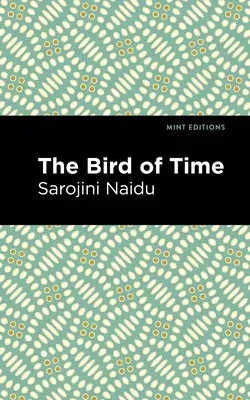The Bird of Time (1912) is a poetry collection by Sarojini Naidu.
Naidu's second book of English verse is steeped in the Romantic
tradition while entirely conscious of the present political strife of
her native India. From songs of love to portraits of urban life, Naidu's
poems reflect her commitment to feeling, both for herself and for
others. Traditional and modern, The Bird of Time is a powerful
collection from a young poet on the brink of an impassioned life in
politics. "O Bird of Time on your fruitful bough / What are the songs
you sing? . . . / Songs of the glory and gladness of life, / Of poignant
sorrow and passionate strife, / And the lilting joy of the spring..." In
this mysterious ode, Naidu addresses the themes of her own multitudinous
poems--life, love, grief, and nature, among countless others. Is the
Bird of Time her muse, or a symbol for poetry itself? How can a poem
express "the pride of a soul that has conquered fate?" As in much of
Naidu's poetry, the symbolic maintains its distance in order to reflect
a deeper, perhaps even personal truth. To describe the poem, to assign
it meaning, would ultimately negate the need for poetry itself, whose
powers must remain at least partially veiled. Elsewhere in the
collection, "In the Bazaars of Hyderabad" reflects her commitment to the
struggle for Indian independence as it celebrates the homegrown produce
and handmade wares of a proud and lively people. Moving along the
street, she sings to vendors, goldsmiths, and musicians alike,
concluding before a group of flower-girls, whose work serves weddings
and funerals. Beneath this vibrant imagery is a call to action for the
Swadeshi movement, a boycott of foreign goods designed to strike a blow
against British commerce. With a beautifully designed cover and
professionally typeset manuscript, this edition of Sarojini Naidu's The
Bird of Time is a classic work of Indian literature reimagined for
modern readers.


